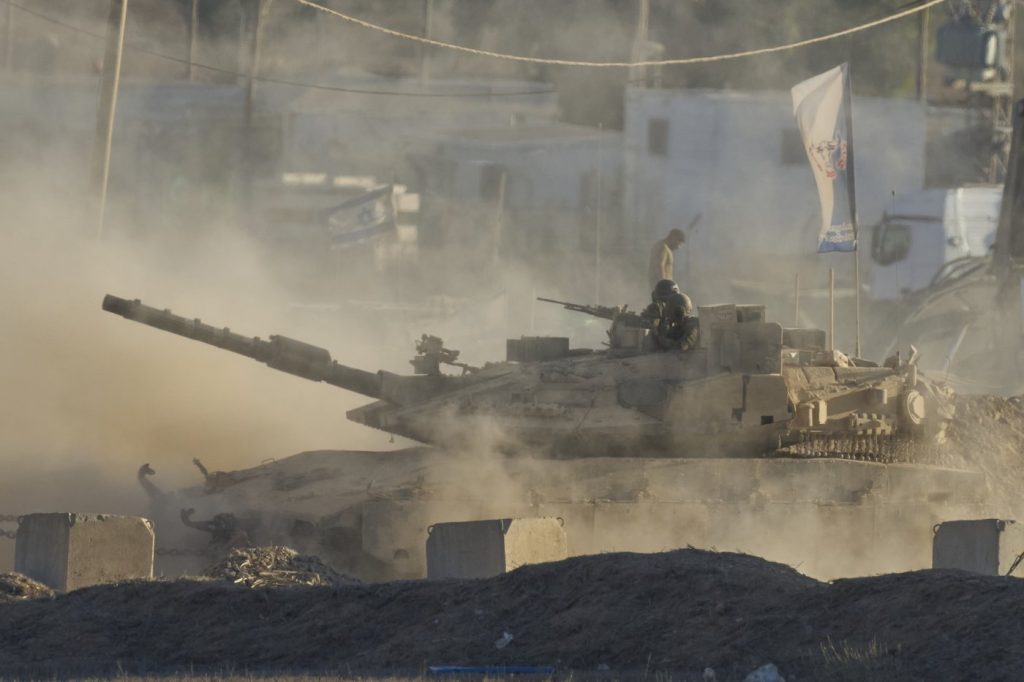Israel has taken significant military action against its adversaries in the region, successfully routing many but not managing to secure the return of hostages from the Gaza Strip. Despite Hamas being largely militarily diminished, the group continues to execute insurgent attacks. Meanwhile, Gaza is experiencing devastating conditions, with experts warning of an impending famine. Efforts to negotiate a ceasefire appear to have stalled, leaving many to ponder the future of the conflict.
Both Israel and Hamas have proposed distinct paths for the war’s resolution, yet mediators from the United States, Egypt, and Qatar have struggled to find common ground. The situation could lead to one of two scenarios where combat continues indefinitely, resulting in unbearable costs for Gaza's 2 million residents, as well as for the families of Israeli hostages.
Full Reoccupation of Gaza
Recent reports suggest that Israeli Prime Minister Benjamin Netanyahu is considering a full reoccupation of Gaza, a first since Israel's withdrawal two decades ago. A meeting of the security Cabinet is imminent, where a decisive plan may emerge. Such a reoccupation would involve deploying ground troops in the few remaining habitable areas of Gaza, risking countless more Palestinian lives and potentially endangering the 20 hostages still held by Hamas.
This plan would place Israel in full control of Gaza, requiring it to adhere to international law concerning the welfare of civilians. However, reoccupation would invite international outrage and could further isolate Israel and the United States on the global stage. There is also significant domestic opposition in Israel from those who fear the repercussions for the hostages as well as warnings from former security officials about getting embroiled in a protracted conflict.
The far-right allies of Netanyahu's government have long advocated for a reconquest of Gaza, including the relocation of its inhabitants and the reestablishment of Jewish settlements.
A Ceasefire in Line with International Demands
Hamas has communicated that it might release the remaining hostages in exchange for the liberation of Palestinians imprisoned by Israel and a complete withdrawal of Israeli forces from Gaza, alongside a sustainable ceasefire. These demands have been supported historically by national and international actors, including previous U.S. administrations and the U.N. Security Council.
Previous ceasefires facilitated humanitarian aid and the release of several hostages. However, Israel’s demand for continued hostilities led to the end of the last truce, as Israeli officials expressed concerns about Hamas potentially reestablishing its military capacities in Gaza.
Netanyahu's governance may be threatened if he concedes to truce negotiations, particularly as his far-right allies have been vocal about their ambitions, potentially unseating him amidst ongoing scrutiny of his political and legal troubles.
A Ceasefire on Israel’s Terms
Netanyahu has set forth that the war will conclude once all hostages are retrieved and Hamas is either defeated or agrees to disarm and relocate. He has also drawn up plans to facilitate the “voluntary” relocation of Gaza’s population to other nations—an approach condemned by Palestinians and international bodies as echoing forced expulsion.
Netanyahu’s proposals also include a temporary ceasefire tied to the release of some hostages, humanitarian aid, and a limited Israeli withdrawal. Yet, the ultimate cessation of conflict would depend on Hamas disarming. While Hamas might concede regional governance to other Palestinian factions, it will not disarm until Israel vacates occupied territories that Palestinians view as part of their future state.
A Forever War
The conflict could persist in its current state, with Israel conducting ongoing airstrikes it claims target militants while frequently resulting in civilian casualties. Hamas could continue sporadic, low-intensity offensives against Israeli forces. Although some humanitarian interventions may temporarily alleviate the suffering within Gaza, the situation remains dire.
In light of upcoming elections in October 2026, there's potential for shifts in Israeli leadership that could influence the ongoing conflict, even if Netanyahu maintains his political coalition.
The path ahead largely hinges on the influence of U.S. President Donald Trump, who has provided military and diplomatic backing to Israel. While expressing a desire to end the conflict and secure the return of hostages, Trump has not publicly pressured Israel and seems to be leaning toward accepting its current demands.











